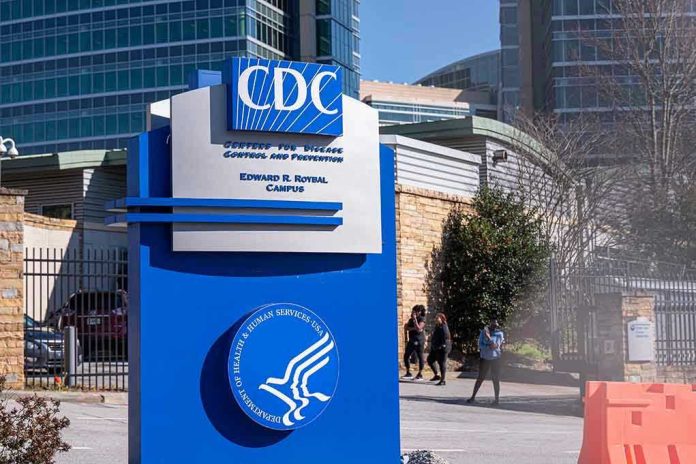
In a move that shakes the foundation of federal authority over childhood health, two embattled doctors have sued the CDC, demanding the agency prove its recommended vaccine schedule is safer and more effective than it is harmful—raising the stakes for parental rights and constitutional limits on government power.
Story Snapshot
- Two doctors, backed by an advocacy group, have filed a federal lawsuit challenging the CDC’s childhood vaccine schedule and demanding proof of its cumulative safety.
- The suit questions the constitutionality of CDC’s process, aiming to shift the burden of proof onto the federal agency.
- The American Academy of Pediatrics (AAP) has broken with the CDC for the first time, issuing an independent vaccine schedule in response to recent CDC leadership changes.
- This legal and policy battle intensifies national debate over parental choice, public health mandates, and the integrity of federal agencies.
Lawsuit Seeks Accountability and Constitutional Clarity
On August 15, 2025, Dr. Paul Thomas and Dr. Kenneth Stoller, supported by Stand for Health Freedom, filed a lawsuit in the U.S. District Court for the District of Columbia against the Centers for Disease Control and Prevention. Their claim: the CDC has not adequately demonstrated that the cumulative childhood immunization schedule does more good than harm. The plaintiffs argue that CDC recommendations function as de facto mandates, enforced by state laws, medical boards, and insurance companies. Instead of targeting state mandates, the suit challenges the CDC’s administrative process and constitutional authority, seeking to force the agency to provide robust scientific evidence for the entire schedule before it can be recommended or enforced.
Both doctors bringing the suit have previously had their medical licenses suspended or revoked due to vaccine-related practices, a point cited by critics to question their credibility. However, their lawsuit has quickly become a flashpoint for Americans concerned with federal overreach, parental rights, and the erosion of constitutional limits. The plaintiffs contend that the CDC has shifted from providing voluntary, evidence-based guidance to imposing top-down mandates that restrict individual choice and override state and parental authority. This echoes broader concerns among conservative Americans that bureaucratic agencies, unaccountable to voters, are bypassing constitutional checks and the rights of families.
CDC Faces Unprecedented Pushback and Policy Upheaval
The CDC’s Advisory Committee on Immunization Practices (ACIP) has come under intense scrutiny in recent months. In June 2025, Health and Human Services Secretary Robert F. Kennedy Jr. testified before Congress, highlighting the growing number of vaccines children receive and calling into question the process by which the CDC reviews and recommends these interventions. Subsequently, the ACIP was overhauled, with new members—some skeptical of existing vaccine policies—appointed and new working groups tasked with reviewing the cumulative effects of vaccination. This policy shakeup coincided with the American Academy of Pediatrics (AAP) breaking ties with the CDC for the first time in decades and issuing an independent, evidence-based vaccine schedule.
Supporters of the lawsuit argue that these events expose deep problems within federal public health agencies: a lack of transparency, politicized science, and disregard for constitutional limits. Critics, including the AAP and most mainstream medical organizations, counter that the CDC’s schedule is backed by decades of research and that undermining it could erode public trust, lower vaccination rates, and put children at risk for preventable diseases. Nonetheless, the legal challenge has forced the CDC and its advisory panels to defend not only the science but the process—and legitimacy—behind their public health recommendations.
Implications for Parental Rights, Public Trust, and the Future of Vaccine Policy
The immediate impact of this lawsuit is an intensifying public debate over who controls children’s health decisions: federal agencies, state governments, or parents themselves. In the short term, confusion and division have increased as some states and health systems begin adopting the AAP’s new schedule instead of the CDC’s. Legal scholars and policy experts warn that, if successful, this suit could force the CDC to conduct new cumulative safety studies or fundamentally alter its recommendation process—setting a precedent for challenging other federal public health guidelines on administrative or constitutional grounds. At stake is not only the future of vaccine policy, but the principle that government agencies must be accountable to the people and operate within the bounds of the Constitution.
"Doctors sue CDC over childhood vax schedule, demanding proof it does more good than harm" – Blaze Media #SmartNews — There WILL be many more ill children! Listen to your OWN Dr. Kennedy is finding ppl to support his non proven ideas! https://t.co/UJMlV5j5RV
— bonnieT (@bonnieT11) August 25, 2025
Expert commentary remains sharply divided. The AAP and leading pediatricians argue that politicizing vaccine policy endangers children’s health, while advocates for the lawsuit maintain that greater transparency and individualized risk assessment are overdue. Meanwhile, mainstream medical and legal experts question the standing of the plaintiffs, emphasizing that their license suspensions were unrelated to the CDC schedule itself. As the case moves forward, the outcome will likely influence not just vaccine debates, but the broader struggle over constitutional government, parental rights, and the limits of federal authority in American life.
Sources:
AAP evidence-backed immunization schedule reflects break with CDC advisers
AAP issues evidence-based vaccine schedule for young children
Newly appointed CDC vaccine advisory committee holds first meeting, stirs more controversy
New Colorado law on vaccine recommendations, RFK Jr. and the CDC
Vaccine-skeptic doctors sue CDC over childhood schedule, claiming a shadow mandate














